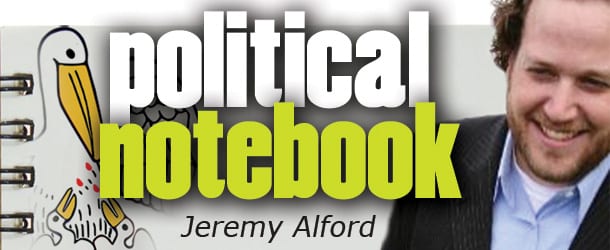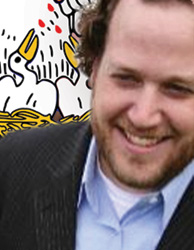Lawmakers have long had the luxury of diving into redistricting sessions as lobbyists sat back and watched — usually from a distance. That’s because outside of the rails, those who could influence life inside the rails considered the topic off-limits and internal to the House and Senate. In recent history, leadership elections have been hands-off for government relations pros, with a few exceptions here and there.
But all of that could change this term, according to some in the know, such as state Senate President John Alario. As part of LSU’s post-election forum, while speaking about the upcoming leadership elections, Alario said any diminishment of the role traditionally played by the governor could result in increased activity by special interests, donors or lobbyists.
“The opposite of having (Gov. John Bel Edwards) support someone is to have somebody being supported by some outside interests,” Alario said, adding that those interests would most likely be interested in disrupting the incumbent’s second term.
While there’s already money from special interests floating around the leadership ether, the upcoming redistricting process is attracting outside eyes as well. For example, Louisiana-based Fair Districts, a “grass-roots, nonpartisan alliance of citizens advocating for redistricting reform,” is said to be firming up its operations and expanding ahead of the 2020 regular session.
Both mainline political parties are teeing up their maps and arguments as well, and in some corners, even potential litigation strategies are being penned.
As for possible policy proposals for the 2020 regular session, we just need to look at other states. Advocates in Illinois, Oklahoma, Oregon and Virginia are currently pushing proposals to take mapmaking powers away from lawmakers and give them instead to nonpartisan commissions. If that happens, they’ll join 14 other states that already have such panels.
In regard to the action on the streets ahead of the 2020 Census, we should begin seeing increased activity from nonprofits and partisan groups here fairly soon. They’ll be working overtime to make sure the federal head-counters capture as many people as possible. (A massive coalition in Texas was just created to spearhead such efforts to our west.)
The 2020 Census and 2021 redistricting session represent a complex web of politics and population. Some states are already reviewing and approving plans as others apply new mathematical systems to their mapmaking. Questions linger about how prison populations should be handled and whether new forms of data should be gathered by the U.S. Census Bureau.
That’s all to say the process will probably be ugly, especially in Louisiana, with a Democrat in the Governor’s Mansion, a GOP supermajority in the Senate and another near-supermajority in the House.
2020 Election Battles Underway
Louisiana’s first major municipal race of the new cycle (let’s just go ahead and admit we’re in the next election cycle) is already underway ahead of the 2020 spring ballot.
Businessman Friday Ellis will challenge Monroe Mayor Jamie Mayo in the April 4 municipal elections. Qualifying is in January.
Ellis, LABI’s 2019 Free Enterprise Champion, has already been endorsed by Rep.-elect Michael Echols in his bid to unseat the Democratic incumbent. Regarding the challenge, Mayo released a statement to local reporters noting that Ellis “will be the fourth former city employee to seek the office of mayor during my administration.”
The spring presidential primary ballot will also host several other races for mayor, a district judgeship, an appellate seat, the Republican State Central Committee and the Democratic State Central Committee. Also, it will feature presidential nominees. (Their filing deadline is Jan. 10).
The fall ballots next year will be even hotter, obviously, with President Donald Trump at the top and U.S. Sen. Bill Cassidy defending his post alongside members of our congressional delegation. We’ll see yet another state Supreme Court election next fall, and two races are on tap for the Public Service Commission. The jungle primary is scheduled for Nov. 3 and the runoffs, as needed, will be Dec. 5.
As of now, there is only one proposed constitutional amendment slotted for the November ballot. It would add language to Louisiana’s charter to ensure there are no rights or privileges allowed in the document for abortions and abortion-related funding.
In other news, and just in case the above review wasn’t forward-looking enough for you, intrepid journalist Gregory Todd Hilburn of the USA Today Network of Louisiana, recently offered us a forecast of the 2023 governor’s race.
Hilburn led his story with Attorney General Jeff Landry (unavailable for comment) and Lt. Gov. Billy Nungesser (he said he is “absolutely” thinking about running).
As for the rest, Hilburn had this to add: “Among other Republicans who might have the 2023 race on their radar are Congressman Garret Graves of Baton Rouge, state Sen. Sharon Hewitt of Slidell, U.S. Sen. John Kennedy, Treasurer John Schroder and Agriculture Commissioner Mike Strain. Republican Congressman Steve Scalise of Metairie is popular statewide, but he declined to run for governor this year even when asked directly by President Donald Trump to enter the race.”
President’s Sway Over Election Still Being Debated
While Louisiana’s 2019 election cycle has come to a close, the speculation and pondering about the role President Donald Trump played at the top of the ballot still lingers.
Gov. John Bel Edwards won a second term with 51 percent of the vote, compared to the 49 percent secured by Baton Rouge businessman Eddie Rispone. Trump visited Louisiana on three separate occasions this cycle; the last two visits were in support of Rispone’s campaign during the final weeks of the runoff.
“President Trump woke up a fairly unenthused electorate and helped give the Rispone campaign a fighting chance,” said consultant Lionel Rainey III of Baton Rouge, who served as the senior strategist to Congressman Ralph Abraham, the primary’s third place finisher. “But the president wasn’t on the ballot, and that’s a problem when the majority of your campaign has been about him.”
There are a handful of hard-to-miss factors that point to a limited amount of influence coming from the president during the runoff. For example, Bossier City, which the president last visited just a day prior to the Nov. 16 runoff, is part of the Fourth Congressional District, which saw the lowest turnout rate for the governor’s election.
Stewart Cathey of Sterlington, who was elected this fall as a freshman state senator-elect, admitted Trump’s support probably wasn’t enough, but argued that Rispone would not have fared as well against Edwards had the president not visited. Edwards bested Rispone by 1.4 percentage points, or roughly 40,000 votes.
Cathey recalled a story from the president’s stop in Monroe. He and a group of friends were patronizing a local restaurant and coincidentally walked inside with Rispone in the hours following the Trump rally.
“People kept coming up to us and asking us if we could help them get a picture with Eddie,” said Cathey. “Had we all walked in at 5 o’clock that afternoon, it would have never happened. But by then everyone had seen him on television with the president.”
Even among some voters who cast ballots for Edwards, the president was the centerpiece of the recent election cycle.
“Trump!” exclaimed Maddie Robinson of Baton Rouge, after she voted this weekend for Edwards and was asked what was driving the election. “We have one of the most conservative governors in the country,” she said. “But the president doesn’t think so, and now he’s come down here to make sure the governor loses.”
Robinson, who was born in Romania, participated in what was her third Louisiana governor’s race. She previously supported former Republican Gov. Bobby Jindal, but crossed party lines when Edwards appeared atop the ballot in 2015.
For his part, and despite his loss, Rispone certainly seemed pleased to have the help as he addressed voters after Edwards was declared the winner on election night. “Can we give President Trump a round of applause?” Rispone asked. “That man loves America and he loves Louisiana. He came down here three times specifically to help us.”
How The Legislature Got From There To Here
In January, Louisiana will see its 72nd Legislature, and its 12th operating under the 1974 Constitution, seated in Baton Rouge.
Before that happens, it may behoove us to take a look back to see what has led us to this moment in legislative history.
— Lawmakers used the terms “county” and “parish” interchangeably until the 1845 constitution, when the term “parish” was used for the official political subdivision.
— The Legislature was elected every two years until 1880; its members were elected every four years thereafter.
— The War of 1812 started in June, 1812 and continued until a peace treaty in December, 1814. No legislature met in 1813.
— The historic Battle of New Orleans was fought in January, 1815, preventing a Legislature from meeting in that year as well.
— During the Civil War there were two elected legislatures meeting simultaneously.
— The period from 1861 (beginning of the Civil War) until 1880 (the end of Reconstruction) is especially difficult for researchers, since journals listed delegates without parish or party designations. Few records documenting the Confederate Legislature, which met in north Louisiana, still exist.
— The position of speaker pro tempore in the Louisiana House of Representatives was created by the House on the first day of the 1972 Regular Session.
— In 1995, Louisiana enacted term limits for its Legislature, with limits of 12 consecutive years or three terms each in the House and Senate taking effect in 2007.
— Acting in what conservative members described as a burst of independence, representatives elected their first speaker in modern history who did not have the support of the sitting governor.
— For the first time in its recent history, the Senate will vote by secret ballot for its president in 2020.
They Said It
“There’s no competing with the leader of the free world when he comes and campaigns against you. Our strategy became, ‘Continue telling the story that we’ve been telling all along.’” —
Gov. John Bel Edwards’ campaign manager Richard Carbo, at a post-election forum hosted by LSU’s Manship School of Mass Communications
“Our first poll had him at 49 percent.”
— Eddie Rispone campaign manager Bryan Reed, discussing Edwards
“We didn’t have enough to get on TV in East Baton Rouge.”
— Congressman Ralph Abraham’s senior consultant, Lionel Rainey III, explaining why the campaign ran third in the primary
“A lot of folks were intimidated by Gov. Edwards, and for good cause.”
— Abraham chief of staff Luke Letlow
“I’ve been down here so much I’m going to the DMV to get a license.”
— President Donald Trump’s campaign manger Brad Parscale, to a Bossier City audience prior to Trump’s rally for the gubernatorial runoff
“Don’t do it after the game. I’ve seen you guys drink in parking lots before.”
— Parscale, on voting on the same day as Louisiana home games















Comments are closed.